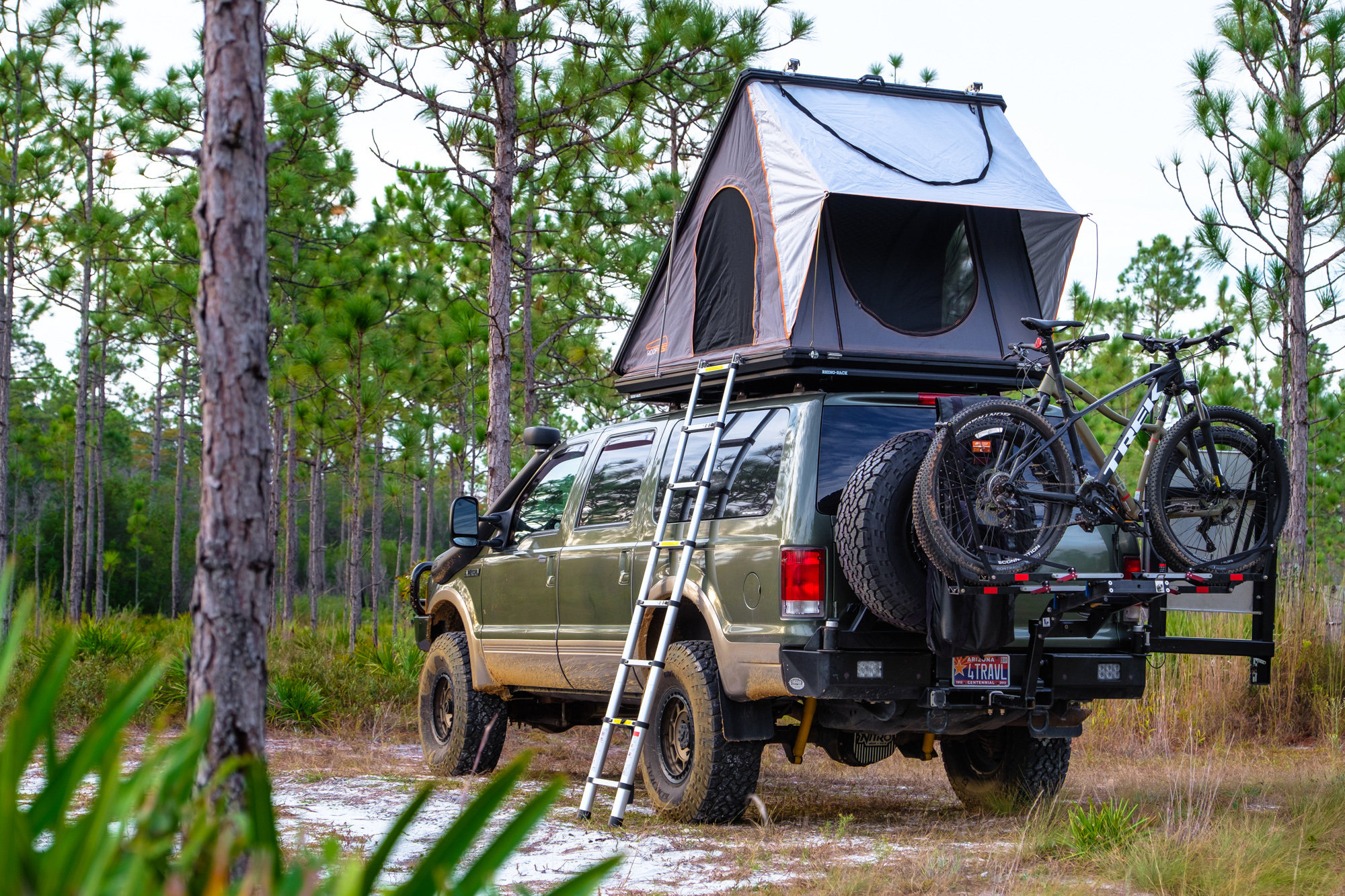I bought my first rooftop tent 10 years ago, a used Howling Moon with a tan cover, weather-worn canvas walls, and a folding floor made of wood. At the time, I thought it was the pinnacle of camping technology, but it was actually a relic. Its bulky design had already been roaming the African and Australian continents unchanged for decades before arriving on American soil. These days, RTTs need to be slimmer, lighter, and more versatile than ever before if they wish to compete, and that’s precisely what Roofnest was aiming for when they produced the Falcon.
At just 7 inches thick, the Falcon XL is one of the thinnest tents on the market, which translates to a smaller impact on your fuel economy, a greater chance of fitting into your garage, and less wind noise on the highway. The shell is made from aluminum honeycomb sheets with a reinforced bottom and is bound together by extrusion on all four sides. The combination is sturdy enough to support up to 650 pounds while only weighing 150 pounds. For reference, that’s heavier than the Go Fast Camper’s RTT at 135 pounds, 14 percent lighter than an ARB Simpson III at 171 pounds, and 29 percent lighter than Alu-Cab’s Expedition tent at 194 pounds. The regular Falcon weighs 135 pounds, matching the GFC’s weight.
Making a thin, lightweight tent comes with compromises, one of which is a loss of interior space when closed. This problem forced Roofnest to choose between retaining a thick comfy mattress with very little excess space or using a thinner one with more room for bedding. In the end, they opted for the plush support of a 3-inch mattress, which is truly comfortable. Unfortunately, that means you won’t be leaving your bedding in the tent when closed, which could be a deal-breaker for some.

When opened, the XL’s 6’10” x 58 inches of interior space feels cavernous, but the angle of the wedge could pose a problem for those in the 6’4” and above range who sleep on their back, as your toes may touch at the narrow end.
Thankfully, the tent makes up for that with loads of exterior storage. The aluminum extrusion running the length of the unit features integrated T-slot channels which can be paired with just about a limitless number of accessories, from light bars and shovel mounts to fly-rod holders and small awnings. Roofnest even offers an optional crossbar set for mounting large items like bikes, snowboards, or solar panels, so you won’t lose your storage space just because you have a tent.
The locking latches are a nice touch, as well as the rainfly over the rear entrance to protect you from the weather when getting in and out. But other aspects of the tent need work: the side entrances fall into the tent or over the ladder when open, and the lack of a closed bottom in the interior net allows contents to fall out. Fortunately, Roofnest has already found remedies for these problems, is shipping new nets to existing customers, and has updated the way the doors open. This sort of continuous improvement is what we like to see from a manufacturer and is another reason why I feel the Falcon is a solid option for folks looking for an ultra-thin tent.
$3,495/XL, $3,395 | roofnest.com


